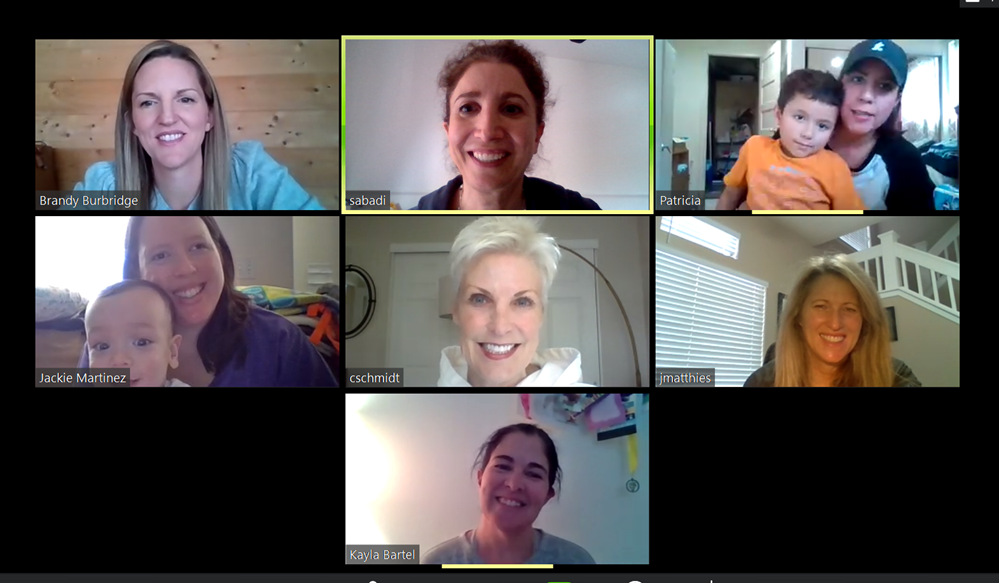
The HR Pros at Emplicity Sum up Their Recommendations for Employers with Parents Working from Home.
After Governor Gavin Newsom and State Superintendent Tony Thurmond publicly announced that California school campuses would likely remain closed for the remainder of the school year, teleworking parents across the state began to accept their new normal. While working remotely isn’t abnormal for many working parents, doing so while also caring for children and managing their distance learning is a challenge that many weren’t ready for. “I go between feeling good and like, ‘I’ve got this’ to the next minute feeling completely overwhelmed,” explained Elisabeth Ramsey, a mother of two and an HR Consultant at Emplicity, a Professional Employer Organization (PEO) which helps small businesses simplify its employer services. She added, “It’s very frustrating and stressful, especially for someone who is achievement-oriented.”
Many employers are feeling overwhelmed too, even those who were already equipped to manage a remote workforce. Before the pandemic, remote workers with children were able to rely on a consistent schedule for school, day care or other childcare options in order to perform their job functions. Due to the strict guidelines surrounding non-essential services, that consistency is no longer an option for a multitude of workers; and many employers aren’t sure how to handle this unprecedented situation.
“One of the biggest things an employer can do at this time is be really proactive, rather than reactive,” emphasized Brandy Burbridge, Director of Recruiting at Emplicity and mom of four. She continued, “Setting the tone for the workplace and letting employees know that you get it, you’re going to support them and you’re willing to be flexible is really important right now.”
Ways Employers Can Support Teleworking Parents
Cheryl Schmidt has mastered the art of managing a remote workforce and offered some of her wisdom to employers who are struggling with the transition. “Leading remote workers, even in the best of times, can be challenging,” Schmidt, Emplicity’s Director of Human Resources, explained. “Unprecedented times of uncertainty, such as these, require leaders to make an extra effort to interact intentionally and creatively bring team members together for a common goal.”
Offer Flexible Working Hours
It’s understandable that you may need your employees to have some availability during normal working hours but, whenever possible, allow employees to adjust their working hours to better fit their home situation. Give your employees the freedom to arrange their working hours however they need to, as long as the desired end result is achieved. “After all,” Schmidt continued, “You hired professionals. Treat them as such and give them the opportunity to shine.”
Acknowledge Personal Hardships
The old adage of leaving your personal life at home no longer applies when the home becomes the workplace. “It’s critical to respectfully acknowledge your employees’ personal lives,” Schmidt asserted. “One’s personal state of being directly affects their professional interactions and productivity. Understand that each person is handling their situation differently.” Having to juggle household obligations and work obligations simultaneously may come naturally to some, but not the majority. “Folks may be coming into a meeting in a different emotional state during this pandemic. I encourage leaders to extend trust, grace, and a safe space for employees to share and be conversational about their personal lives.”
Maximize Communication and Connection
As a veteran of the HR Outsourcing space, Schmidt emphasizes the importance of connecting with her team now more than ever. “I touch base with them often, not in a micromanaging way, but in a way that lets them know I’m accessible, I care, and I am here to support them through their daily challenges,” Schmidt encourages business leaders to demonstrate their availability by utilizing video calls as much as possible and making sure their own camera is on every time. “Being present is a vital trait for any leader or teammate,” she explained. However, Schmidt recommends that leaders loosen up the topics a bit when connecting with employees. “Don’t always talk about work or the pandemic,” Schmidt added. “In addition to acknowledging how one’s life has changed or is changing, make sure to talk about informal and fun topics during one-on-one calls and as a team.”
It’s also important to encourage remote employees to connect with each other as well. At a work site, camaraderie and teamwork happens organically because colleagues can easily collaborate with one another in person. Bringing together a remote workforce in the same way is challenging, but not impossible. There are a number of tools employers can utilize to bring employees together. Schmidt suggests using a combination of platforms (video, email, chat, etc.) to give workers the ability to communicate and collaborate effectively. “Now more than ever, we need hope, compassion, and camaraderie. It’s my passion and mission to build a sense of community with the team I’m privileged to serve!” Schmidt concluded.
Utilize Available Resources
Because the current situation is the result of the COVID-19 pandemic, there are resources available for both employers and their workers; and some are specifically geared toward teleworking parents who are at home with their children. The Families First Coronavirus Response Act (FFCRA) specifically makes paid leave available to parents who are unable to complete their job duties due to caring for a child while their childcare is unavailable due to COVID-19. Employees can take this leave all at once, but can also use it intermittently to cover specific hours or days during which they are unable to meet their job expectations. Employers can utilize the tax credits set forth by the FFCRA and CARES Act to reimburse themselves for this specific type of leave.
As Governor Newsom made clear in another recent press conference outlining the framework for re-opening the state, COVID-19 isn’t going away in the immediate future. Until a successful vaccine or proven herd immunity is achieved, Californians will have to adapt to new and changing protocols and adjust to the “radically different realm” Newsom described in his April 14, 2020 press conference.
“The idea that you don’t come into work sick is going to be a much bigger issue going forward, even when non-essential businesses are allowed to reopen,” remarked Brandy Burbridge. “Later, as we continue into what is going to be our new normal, taking those steps to allow people flexibility in working remotely and having the mindset that this can be done effectively is going to ensure long term success,” Burbridge concluded.
Need help untangling your human resources?
Since 1995, Emplicity has helped make employee management simple through its role as a Professional Employer Organization, or PEO. Serving small businesses with a comprehensive service that includes payroll processing, benefits administration, hr compliance and workers’ compensation and EPLI coverage, the California-based firm provides its services to over 7,000 employees throughout California and the western states. For further information, please contact Angela Bishop at marketing@emplicity.com or 714-668-1388.
About Emplicity:
Since 1995, Emplicity has provided a smarter, more secure, and integrated platform of employer services to its 300 business clients and their 8,500 employees. As a Professional Employer Organization, or PEO, the California-based HR outsourcing firm simplifies the compliance, administration, and support businesses need in the areas of employee benefits, payroll, and human resources technology.
For more information about us, visit www.emplicity.com or call us at (877) 476-2339. We’d love to make your employee management more simple—and secure.
NOTICE: Emplicity provides HR advice and recommendations. Information provided by Emplicity is not intended as a substitute for employment law counsel. At no time will Emplicity have the authority or right to make decisions on behalf of its clients.


